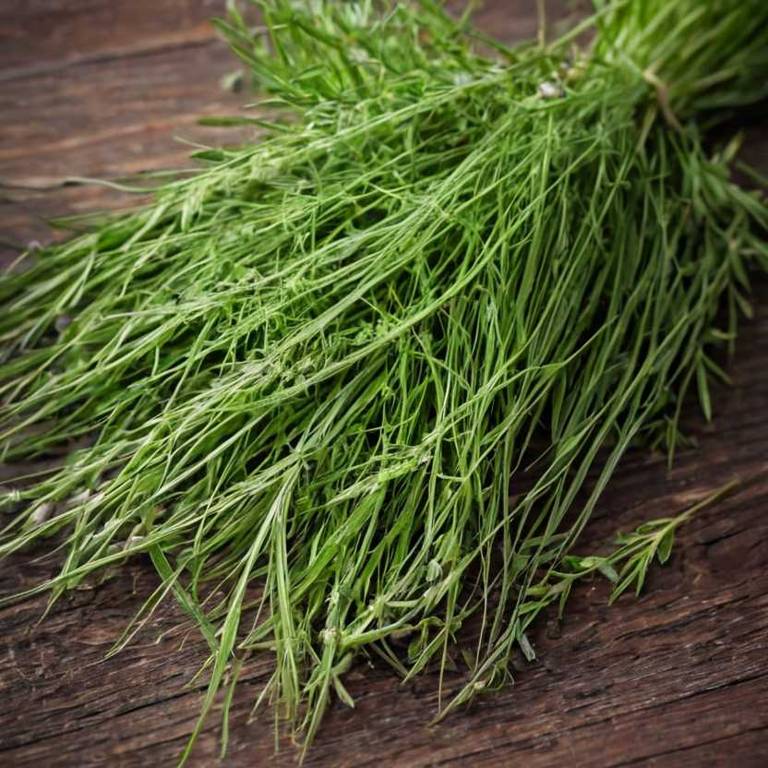By Leen Randell
Updated: Jul 26, 2024
What Are The Medicinal Properties Of Elymus Repens (Couch Grass)?

Elymus repens, also known as couch grass, has health benefits such as treating digestive issues and relieving anxiety and stress.
Its medicinal constituents include flavonoids, phenolic acids, and phytosterols, which contribute to its therapeutic properties. Elymus repens can be prepared into teas, infusions, or tinctures to utilize its medicinal properties. Possible side effects include skin irritation and allergic reactions in some individuals.
Precautions should be taken when using Elymus repens, especially for those with allergies or sensitivities, and under the guidance of a healthcare professional.
This article explains the health benefits, active constituents, medicinal preparations, possible side effects, and precautions related to Elymus repens.
What are the health benefits of Elymus repens?
Elymus repens, also known as couch grass, has health benefits such as soothing digestive issues, reducing inflammation, and exhibiting antimicrobial properties.
The plant's rhizomes contain fiber, vitamins, and minerals, which can aid in bowel movements, alleviate constipation, and support the growth of beneficial gut bacteria.
Additionally, its antiseptic and anti-inflammatory compounds may help treat skin conditions, wounds, and minor infections.
Here's a detailed article about the 10 health benefits of Elymus repens.
What are the active constituents of Elymus repens?
Elymus repens, also known as couch grass, has active constituents such as alkaloids, flavonoids, and terpenoids.
The plant's aerial parts contain coumarin, which has been used to treat a range of health issues, including insomnia and anxiety.
Additionally, the plant's flavonoids have been shown to exhibit antioxidant and anti-inflammatory properties, while its terpenoids have been used to treat digestive issues and promote wound healing.
Here's a detailed article about the 10 active constituents of Elymus repens.
What are the medicinal preparations of Elymus repens?
Elymus repens, also known as couch grass, has medicinal preparations such as infusions and decoctions.
The grass is harvested in summer, dried, and made into tea. It is used to treat urinary disorders, kidney stones, and gravel due to its diuretic properties.
The plant's roots and leaves are also used to prepare a poultice for external application to treat skin conditions like eczema and acne.
Here's a detailed article about the 10 medicinal preparations of Elymus repens.
What are the possible side effect of using Elymus repens improperly?
Improper use of Elymus repens, also known as couch grass, increases the chances of experiencing side effects such as digestive issues, nausea, and vomiting.
It can also lead to allergic reactions, such as skin irritation and itching. In rare cases, it may cause kidney damage or interact with certain medications, exacerbating pre-existing conditions.
Furthermore, consuming large quantities of couch grass can lead to an imbalance of essential nutrients.
Here's a detailed article about the 10 most common side effects of Elymus repens.
What precautions to take when using Elymus repens medicinally?
Before using Elymus repens, also known as couch grass, for medicinal purposes, you must take precautions such as consulting with a qualified healthcare practitioner, as its active compounds can interact with medications and exacerbate certain health conditions.
Additionally, pregnant or breastfeeding women should avoid using Elymus repens, as its effects on fetal or infant development are not well understood.
Use in moderation is also advised, as excessive consumption can cause adverse effects.
Here's a detailed article about 10 precautions to take when using Elymus repens.